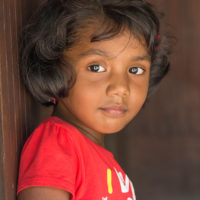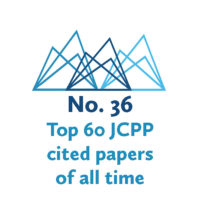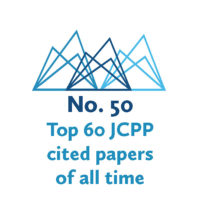Randomised controlled trial
-

Eye movement desensitization and reprocessing improves PTSD symptoms in children
Practice guidelines for childhood post-traumatic stress disorder (PTSD) recommend trauma-focused psychological therapies as the first-line treatment. The primary approach is trauma-focused cognitive behavioural therapies, which have a large evidence base.
Read more -

Trauma-focused group intervention is superior to usual care for young refugees
Data from a randomised controlled trial show that trauma-focused group intervention delivered by trained social workers in addition to usual care (UC) is more effective in reducing post-traumatic stress symptoms (PTSS) in young refugees than UC alone.
Read more -

Foster care promotes adaptive functioning in early adolescence among children who experienced severe, early deprivation.
Experiences in our early life can have long-term consequences on development. Children who have experienced severe deprivation, in the form of institutional care (orphanages), are at greater risk to experience a range of social, emotional, and cognitive difficulties. In fact, much of the research tracing long-term consequences of early adversity have come from a deficit model (i.e., “what goes wrong for those with negative experiences”).
Read more -

Early cognitive therapy for traumatised young people works and is also cost-effective
More than half of children and adolescents will experience traumatic events like vehicle accidents, house fires, or violence. However, brief counselling for young people in the immediate aftermath of an acute traumatic event has not be shown to be any more effective than not intervening and allowing natural recovery to take its course.
Read more -

Most Cited JCPP Articles #36 of 60
Most cited JCPP papers #36 of 60: Joint attention and symbolic play in young children with autism: a randomized controlled intervention study
Read more -

Most Cited JCPP Articles #50 of 60
Most cited JCPP papers #50 of 60: Cognitive behavioral therapy for anxiety in children with autism spectrum disorders: a randomized, controlled trial
Read more -

Improvements of adolescent psychopathology after insomnia treatment: Results from a randomized controlled trial over one year.
Many adolescents experience sleep problems, which can be caused by hormonal changes during puberty, and social changes with increasing complexity of daily life while growing up.
Read more -

Parent-delivered teaching supports children’s early language development
This article is a summary of the paper ‘An evaluation of a parent-delivered early language enrichment programme: evidence from a randomised controlled trial’ by Burgoyne et al. (2018), published in the Journal of Child Psychology and Psychiatry.
Read more -
Adult ABMT protocols need adapting for effective use in children
Attention bias modification treatment (ABMT) aims to target attention biases in threat processing in patients with anxiety1. While ABMT seems to be effective in adults with social anxiety disorder (SAD),2,3 its effect in youths with SAD and the potential treatment moderators are unclear. In 2016, Lee Pergamin-Hight and colleagues conducted a randomised controlled trial to explore the efficacy of ABMT in youths and the influence of possible moderators of treatment outcomes.
Read more -

FRIENDS programme reduced anxiety, but has no effect on school academic performance
Professor Paul Stallard and colleagues have analysed data from the randomised controlled trial “Preventing Anxiety in Children through Education in Schools” that involved >1,300 children aged 9-10 years from 40 primary schools across England.
Read more